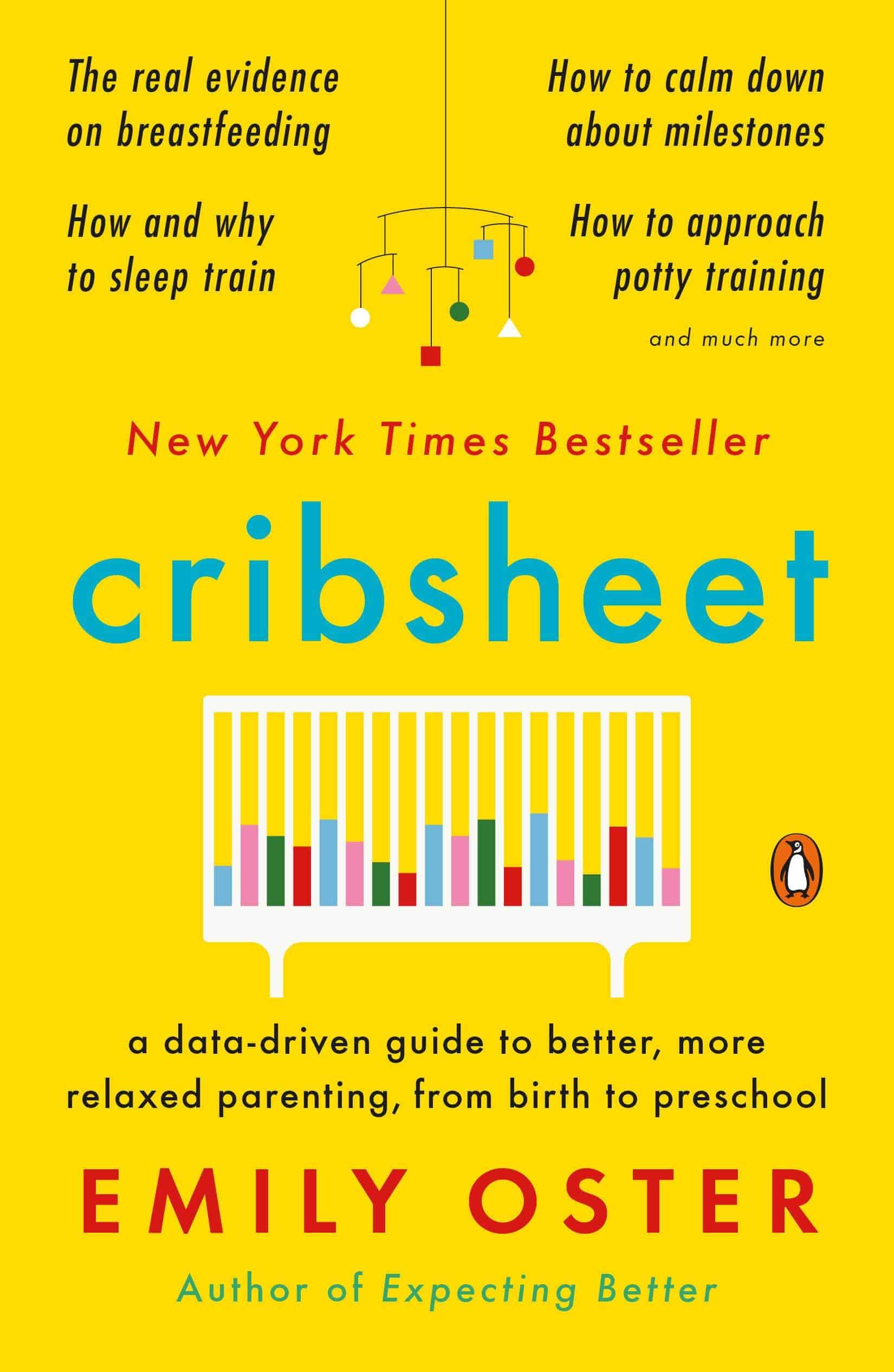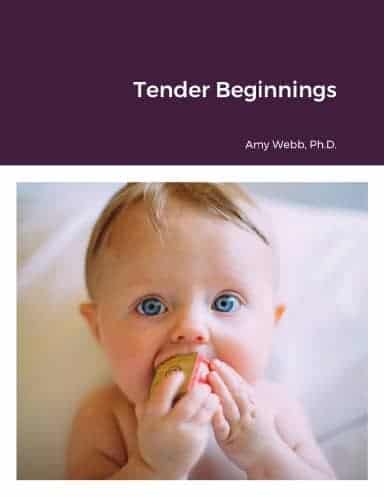Sneak peek: With so many baby development books on the market, it’s hard to know how to choose. These books all provide research-based insight with parent-friendly writing to help you through the early months of sleep deprivation, feeding questions, and more.
When I first found out I was pregnant (over 13 years ago now) I immediately began searching for baby development books. Being a research-minded person, I was drawn to books with a lot of data, written by M.D.’s and Ph. D.s. As I tried reading these books, I soon realized there was something else I needed besides research—approachable and relatable writing. Some research-heavy books were just too much for my tired, pregnant brain to digest.

Then our son was born! We were overjoyed…but also sleep-deprived and full of questions.
Is he eating enough?
Why does he cry so much?
Can we do anything to help him sleep better?
It was about this time, as I tried reading books one-handed while nursing or rocking a baby, that I realized baby development books also need another component — they need to answer real-life questions (like the ones I had).
Now, all these years later, I have found a few books that meet these criteria: research-based, relatable, and that answer real questions. Every time I hear about a new baby development book on NPR or see an author on the news, I try to see if this new book should be added to my list that I recommend to parents.
This list represents some of the best baby development books I’ve found that combine a research-based approach with a writing style that is helpful and not intimidating to parents. I’m always adding to and revising this list, so check back often!
Best Baby Development Books to Help Parents

The Informed Parent: If you are looking for a science-based resource to understand aspects of your child’s development in a user-friendly way, this book is a great choice. It is helpful because it does not try to cover everything, it instead focuses on many of the “hot topic” items that parents often worry about — infant sleep, the role of environmental factors on development, infant feeding, and screen time as just a few examples.
Caring for Your Baby and Young Child: This is one of the first books I started with in my parenting journey. It offers basic, reliable information from the American Academy of Pediatrics. If you are a new parent and have limited experience with babies, this is a good book to help you start learning the basics. All the things you need to know right away when you bring your new baby home.
The Science of Mom: This book was written by one of my favorite parenting authors and it remains one of my “go-to” books that I always recommend to new parents. The author evaluates all the research related to many questions parents wonder about in those early months–breastfeeding, vaccines, attachment, and more. She also writes in an approachable way with compelling stories from her own experiences as a mother. She’s not “preachy” but simply provides the evidence for issues in a compelling and meaningful way. This is one of the best books for a baby’s first-year development.
Wonder Weeks: The thousands of 5-star reviews of this book speak for themselves. This book wasn’t available when my boys were infants, but I wish it was based on my friends’ rave reviews. Babies are fussy a lot, but sometimes we don’t know why. This book offers parents a bit more understanding of the “why” behind their baby’s development. It helps parents discover and track babies’ developmental leaps and changes in behavior associated with them.
If you are interested in learning more about developmental leaps (similar to growth spurts) in older children, check out these articles about toddler growth spurts:
Related reading: The Key to Making Sense of Your Child’s Crankiness: Understanding Growth Spurts
Related reading: Meaning in the Mayhem: How to Spot (and Survive) a Toddler Growth Spurt
Cribsheet: To be honest, I was a little hesitant about listing this book. It is, after all, written by an economist. In the world of social science in which I was trained, child development folks and economists rarely sit in the same theoretical room. However, this book is a great combination of data-rich information and parent-friendly writing that I had to include it here. If you ever wonder about what’s the real story behind common parenting questions, this is the book to get. The author delves into all the research on a particular topic (e.g., breastfeeding, sleep training, toddler discipline) and then presents us with the consensus from that research. She has an approachable, fun writing style while still convening a lot of useful information.
Tender Beginnings: I can’t write a post about baby development books and not include my own! This book has been on my heart for years and I finally sat down and wrote during the pandemic (what else is there to do?). Tender Beginnings is the one I wish I had when my sons were babies. It follows a week-by-week format to help you not only learn about your baby’s development but your development as a parent as well. It’s primarily focused on the mom’s perspective and supporting them during the first 6 months of a baby’s life. It includes research-based information as well as personal anecdotes about my experience as a mom. Now also available on Amazon!
The Bottom Line for Baby: With all the confusing and sometimes conflicting information out there for parents, you often wish someone would just boil it all down to what’s really important. That’s what this book does! Author Tina Payne Bryson is one of my favorite parenting book authors because she does this with most of her books. She does all the research for you and then puts what you need to know into parent-friendly language. This one focuses just on baby issues and it’s a must-read for parents.
The New Baby Blueprint: This book is a great combination of knowledge about caring for a newborn but also caring for yourself (as a mom!). So many books for new parents don’t acknowledge that parenthood is a huge transition for adults too. This one recognizes that and that makes it a great read.
Montessori Baby: Even if you don’t know much about Montessori or don’t plan to send your child to a Montessori school, this book is still super helpful. That’s because the Montessori approach is all about understanding your child’s development and how to support it. We all need help with that!











Leave a Reply